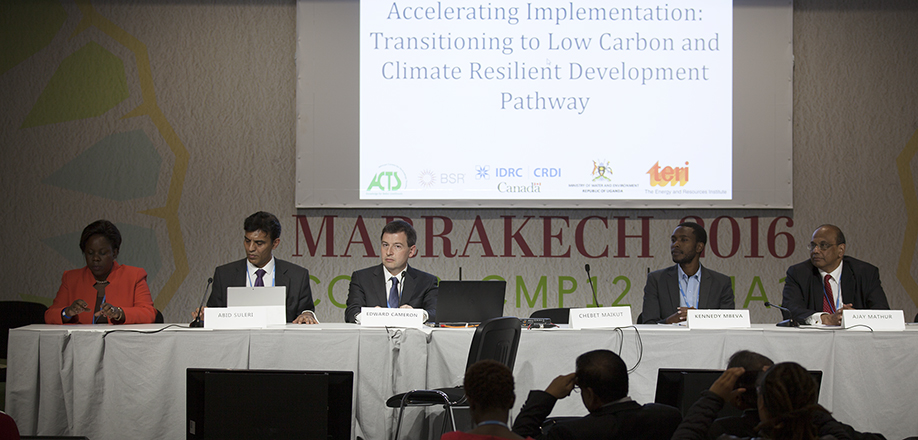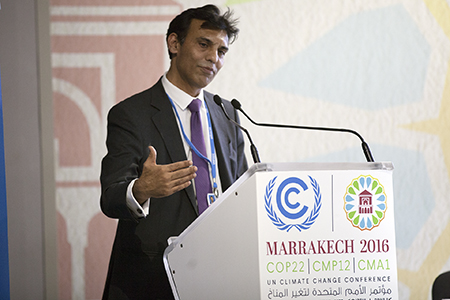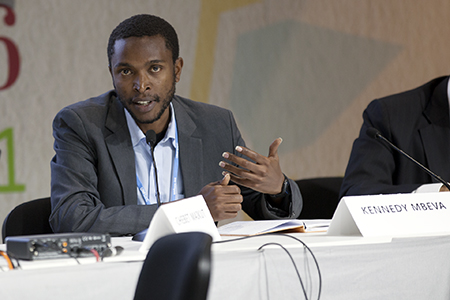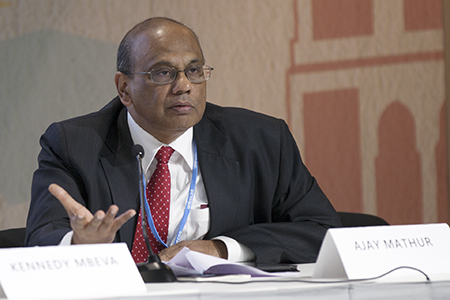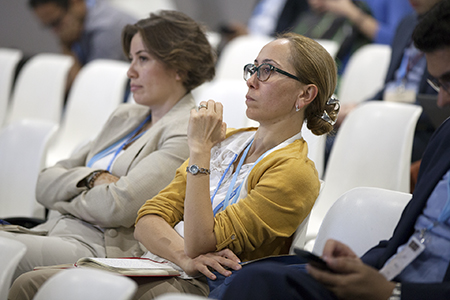|
This side event highlighted the views of experts, policy makers and private sector representatives on solutions and challenges for a low carbon economy. Debates illustrated the urgency of climate action, considering that the Paris Agreement alone is insufficient to achieve established targets on mitigation and adaptation goals.
Moderating the event, Robert Hofstede, IDRC, provided opening remarks highlighting that climate solutions must be people-oriented and that mitigation and adaptation must advance “hand-in-hand.”
Abid Suleri, Sustainable Development Policy Institute, focused on the climate science recalling natural disasters in South Asia, such as droughts in India that, in 2015, caused approximately US$1.5 billion in damage and current require trillions of dollars to recover more than seven years of development loss.
Ajay Mathur, TERI, recalled that two thirds of the buildings that will exist in India by 2030 are not yet built, which represents opportunities for the private sector to tap into the low-carbon business.
Kennedy Mbeva, ACTS, emphasized the importance of innovation that goes beyond technology, such as those related to policy and institutions.
Edward Cameron, BSR, called for structural dialogues between different stakeholders and focused on the importance of enabling environments for scaling up climate investments and finance services related to a low carbon economy.
In the ensuing discussion, participants raised the following: private sector engagement in climate solutions and public incentives; use of technology to increase the resilience of communities; risk management for the private sector and investment opportunities. Panelists highlighted, inter alia, that policy innovation require broad support and peer-to-peer learning and that perceptions and narratives count when talking about innovations and technology transformation.
|


